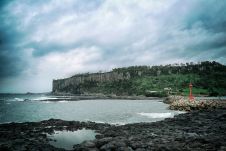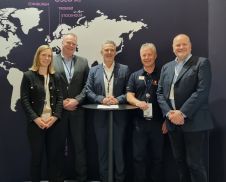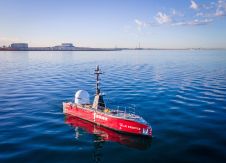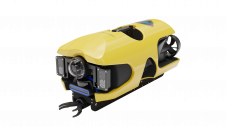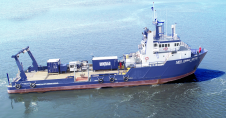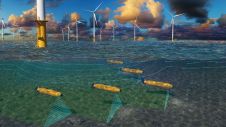Be Prepared
If you don't need it, don't buy it. That sounds like a very sensible attitude in times of crisis when money isn't available in abundance and people have to watch their wallets. One could argue that the economy would benefit from consumers spending, but I'll leave that to economists to fight over. I would like to focus on at least one exemption to the rule, where it might be wise, even necessary to buy, even if one isn't in immediate need. It is the acquisition, processing and analysing of data that will prevent or help to respond in the case of a disaster. Especially in coastal zones, prone to disasters like earthquakes, tsunamis and hurricanes, oil spills or accidents due to failing constructions, having an up-to-date dataset available is a must in order to be able to respond in the best possible way whenever such disastrous events might occur.
It's not cheap to collect coastal data for the purpose of lying on the shelves which is why many governments are very reluctant to allocate funds for such ‘might be useful' data. But then again, ‘might be useful data' could become a matter of life and death. One of the tasks of governments is to create as safe and secure an environment as possible for their citizens. If there are only data available created on a project by project basis, government workers will have a hard time finding and combining all the available datasets in the case of disasters and will surely identify gaps. Of course, in the event of a disaster, institutions and governments forget barriers that previously seemed too high and funds are almost never an obstacle, but it would be much better if barriers didn't exist in the first place and if governments would take their responsibility beforehand, also financially.
With my call to put disaster management - and the decisive factor of good and up-to-date data in it - on the agenda of policy makers, I am following Ron Furness. Ron is one of the founding fathers of the CoastGIS conference series, that will be held this year at beginning of September in Ostend, Belgium. Furness, a nautical cartographer by training, has been interviewed for this issue of Hydro International. He advocates strongly for the protection of the coastal zone, so important for humankind, with disaster management making up a large part of that protection, together with dangers coming from climate change and reckless development of buildings, roads, and ports and harbours. With regard to this, Furness rephrases the old boy scout motto: ‘Be Prepared'.
Putting disaster management on the agenda of policymakers is one thing but it also needs to be on the agenda of hydrographers. As stated above, for consumers it might be wise not to buy if they don't need it. But governments should spend in order to comply with their task of providing secure environments for their citizens. The hydrographic community should be aware of the chance to deliver this data that will hopefully never have to be used, but prepares for and reduces consequences in the case of a disaster occurring.

Value staying current with hydrography?
Stay on the map with our expertly curated newsletters.
We provide educational insights, industry updates, and inspiring stories from the world of hydrography to help you learn, grow, and navigate your field with confidence. Don't miss out - subscribe today and ensure you're always informed, educated, and inspired by the latest in hydrographic technology and research.
Choose your newsletter(s)












